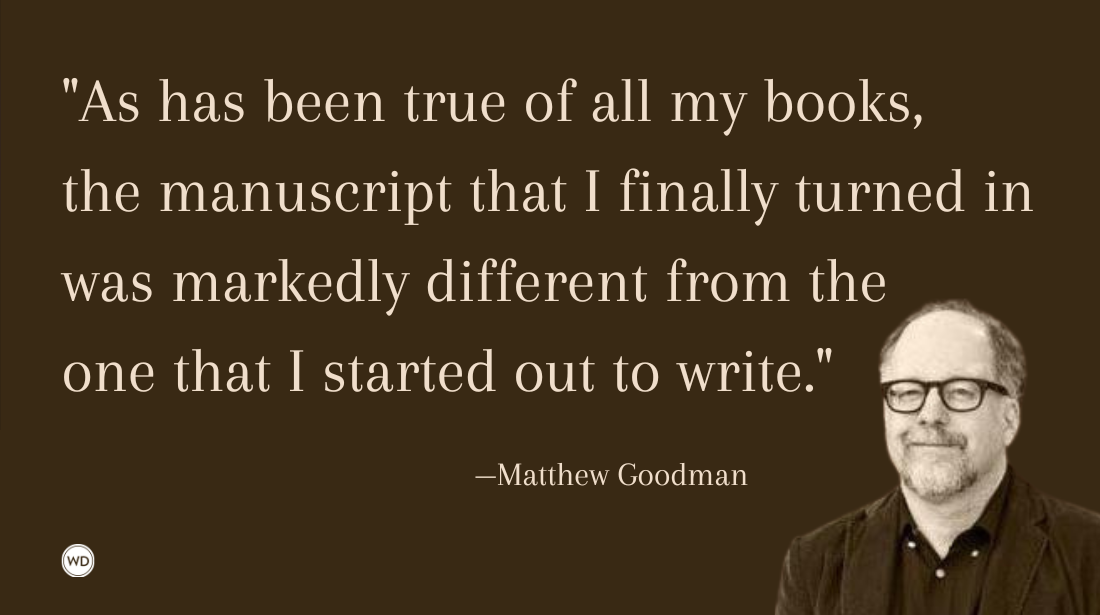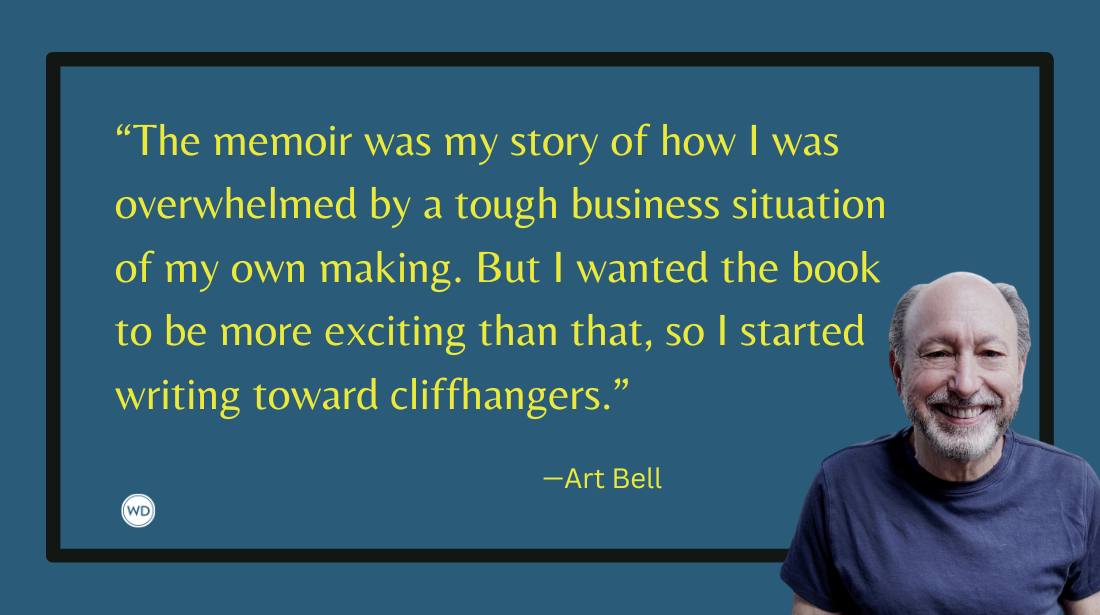How to Write a Good Memoir: Advice on Finding Your Voice
Voice is like your book’s fingerprint—only the author can give a book its own style. Here’s what you need to know about voice in understanding how to write a good memoir.
When my literary agency received the manuscript Candy Girl, written by copywriter-turned-stripper-turned-screenwriter Diablo Cody, my interest wasn’t piqued by the subject matter alone. The topic of stripping had been tackled in memoir before, and I didn’t think the author was likely to add much to an already crowded market. But then there was the voice. After just one paragraph, I was a) completely convinced that stripping was the solution to all of the author’s problems, b) laughing uncontrollably and c) definitely interested in reading all 250-plus pages. This is what voice in a memoir is all about and it's an important element in understanding how to write a good memoir.
Voice is like your book’s fingerprint—only the author can give a book its own voice and style. [Like this quote? Click here to Tweet and share it!] A unique voice can make almost any topic fascinating, from teaching to cattle ranching, and it can make the most wretched of circumstances uplifting. Your voice is also a uniting element; it’s the glue that ties everything together. The structure of your memoir, your setting and your story are all tied together by the voice you use.
This post is an excerpt from literary agent Paula Balzer's Writing and Selling Your Memoir. Balzer is the founder and owner of The Paula Balzer Agency. She represents writers of memoir, popular culture, journalism, and fiction, including Oscar-award-winning writer of Juno, Diablo Cody, author of NYT bestsellers Pledged and Quarterlife Crisis, Alexandra Robbins, American Idol judge Randy Jackson and author of cult classic Gospel of the Flying Spaghetti Monster Bobby Henderson. Purchase her book here.
Think of your voice as your book’s personality. We won’t know if your memoir is quirky, funny, semi-tragic or ultimately inspiring until your voice clues us in. Frank McCourt’s childhood in Angela’s Ashes and Haven Kimmel’s childhood in A Girl Named Zippy each have a completely different feel, even though both deal with tragedy. This is because these authors have distinct voices, and they use them to relate their stories in different manners.
Does every writer have a voice? The answer, luckily, is yes. But not all voices are created equal. That’s OK. Together, we’ll figure out the strengths of your unique voice and how to maximize them in your memoir.
DEVELOPING A GREAT VOICE
Agents and editors are always on the lookout for a great new voice—but what exactly is a great voice? An author’s voice consists of the patterns, habits and language she uses. When combined, these elements create a style that is unique to that particular author. A good voice should aim to do the following:
- Add style and energy to the writing
- Present prose in a manner that is unique, interesting and readable
- Enhance the story being told without distracting from the events taking place
- Engage and excite the reader
- Relay the events taking place with appropriate emotion.
Using your voice means having the confidence and courage to let your writing style shine. This takes practice, diligence and, in some cases, the willingness to un-learn some of the “writing rules” you’ve spent years mastering.
BREAKING THE RULES CORRECTLY
Let me start out by saying that my “breaking the rules correctly” method is by no means a substitute for not knowing the rules in the first place. I assure you that any agent or editor will immediately know the difference between a writer who is artfully playing with language and someone who just plain doesn’t have a clue what he’s doing.
So what do I mean by “breaking the rules correctly”? I have found that sometimes writers feel a need to be correct, and this conformity to the picture-perfect sentence structure we learned in grade school can really be an obstacle when it comes to finding your voice. If a writer spends too much energy focusing on creating the perfect-sounding sentence, her writing is often completely devoid of the kind of life and energy that make the prose worth reading. What you end up with, while correct, is often flat and dull. What are some signs that you might need to let loose and break a few rules?
- You constantly self-edit as you write.
- You use too many or too few words, i.e., you feel the need to have a specific number of adjectives or verbs to properly describe something.
- You want to write the way you sound in your head but worry that the way you sound is “wrong.”
- You’re unable to translate your voice onto paper.
Feeling a need to write correctly is common, and believe me, this need springs from good instincts! But with practice and patience, you’ll be safely and comfortably following your own set of rules in no time at all.
HOW TO WRITE A BETTER MEMOIR:
AVOIDING COMMON VOICE MISSTEPS
To avoid coming across as dry, boring or pompous, ask yourself a few questions about what you’re trying to say and how you’d like to say it.
Just the Facts, Ma’am
Have you ever been seated next to someone at a dinner party who was especially difficult to make conversation with? No matter what you did, you just couldn’t get a feel for this person. You ask, “Hey, how do you know the hostess?” and all you get back is “College.” This guy may very well be a world-famous NASCAR driver or a leading expert in stem cell research, but unless he’s capable of communicating the information, you’re going to give up and start talking to the person on the other side of you.
I can’t tell you how many promising memoirs I’ve received where I actually think, Wow, if this is as good as it sounds, it could be HUGE!—only to be disappointed by the utter lack of voice.
Instead of finding interesting ways to relate their stories, many authors fall prey to the “just the facts, ma’am” syndrome, where they focus so much on getting all the facts on the page that they completely forget about the importance of voice.
Worried you might be falling into the “just the facts” trap? Ask yourself the following questions:
- Am I more focused on getting my story straight, i.e., what happened when, who was there, etc., than I am about describing how things felt and looked? Am I more focused on facts than an overall picture?
- Is my manuscript devoid of emotional reactions to the events I am describing?
- Am I feeling hesitant or nervous about letting my personality show in my memoir?
If so, remember that your voice needs to work in balance with the story you’re trying to tell. Readers want to know about you—your personality, your quirks, your way of thinking and writing. If they lose interest in “just the facts,” they’ll turn away and read something else.
All Voice and No Substance
At the opposite end of the spectrum are those writers who have found their voices but don’t take into consideration the content of their work—the substance. If you answer yes to the following questions, you may be relying on your pithy voice too much.
- When asked what your memoir is about, do you list several completely disjointed and totally unrelated themes that you can’t tie together?
- Have you decided you’ll work on your voice first and worry about your narrative later?
- Have you found your voice but have been forced to start over a few times using several different stories?
- After several attempts, have you admitted that you just don’t know what your memoir is about?
False Authenticity
While it’s important (and of course fun) to have an interesting or quirky voice, it should also be authentic. When I refer to authenticity, to some extent, I’m referring to whether or not you want to sound like a pretentious jerk. And do you? If you write perfectly lovely prose, don’t try to make it sound edgy or weird or funny—unless you are naturally those things. Don’t write your memoir about spending a year herding sheep in rural Italy in a way that reads like it was written by a member of the Hells Angels. And on the flip side, if you in fact are a member of the Hells Angels, go ahead and sound like one! A large part of finding your voice is finding the voice that suits you. Not only does it need to be readable, understandable and interesting, but it also needs to relate well to the person who is actually writing it.
In the middle of writing your memoir or thinking about writing it?
WD’s Memoir Writing Kit is 6 items rolled into one bundle
at a steep discount. This kit gives simple, yet in-depth instruction
on crafting a great memoir and getting it published.
Order now from our shop and get the huge discount.
Thanks for visiting The Writer's Dig blog. For more great writing advice, click here.
Brian A. Klems is the editor of this blog, online editor of Writer's Digest and author of the popular gift bookOh Boy, You're Having a Girl: A Dad's Survival Guide to Raising Daughters.
Follow Brian on Twitter: @BrianKlems
Sign up for Brian's free Writer's Digest eNewsletter: WD Newsletter
Listen to Brian on: The Writer's Market Podcast
Brian A. Klems is the former Senior Online Editor of Writer’s Digest, and author of Oh Boy, You’re Having a Girl (Adams Media/Simon & Schuster). Follow him on Twitter @BrianKlems.








